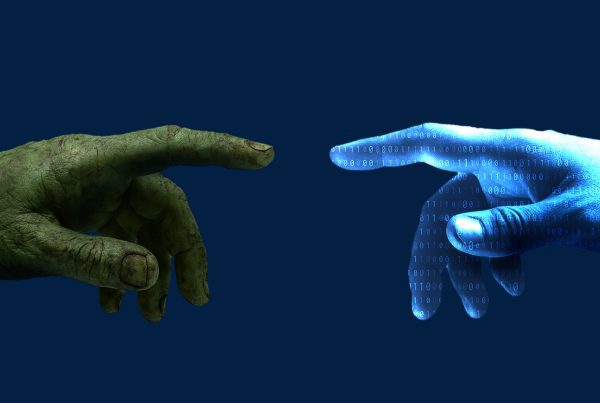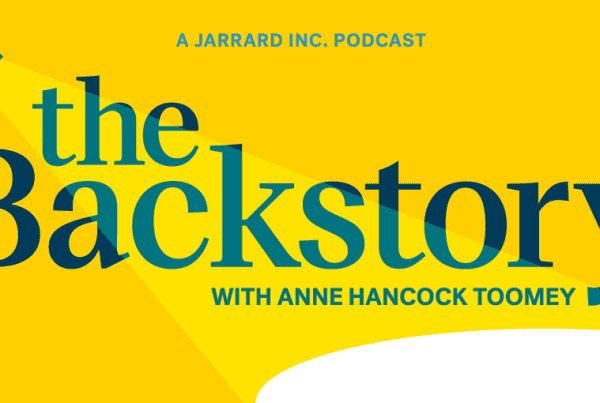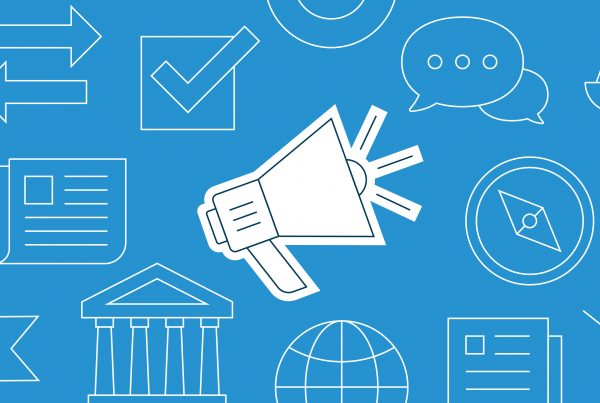This week, we continue our Nashville Health Care Council Sessions series with an episode focused on the industry’s stepwise progression to value-based care (VBC). The shift to value is something that everyone across the healthcare continuum supports in principle, but achieving it is a massive economic and technological undertaking. Ingrained structural challenges have made the transition slower than hoped.
Onstage at Sessions, speakers talked about how the unsustainability of our current healthcare spend is forcing the issue. That, combined with creative new models from entrepreneurs and national organizations, are helping to finally make an accelerated transition to value feasible for providers, payers, patients and every stakeholder in between.
We spoke with Dr. Wyatt Decker, Executive Vice President and Chief Physician for Value Based Care and Innovation at UnitedHealth Group, and Rob Allen, CEO of Intermountain Health, about the innovations that will be necessary to streamline VBC, as well as their respective philosophies about long-term health in a volume-based world.
Key points:
- VBC is only possible at scale if everyone works together. The most formidable roadblock to value is its operational complexity, requiring every stakeholder to rethink how they administer and measure the success of their services.
- The shift to value poses incredible business opportunities for entrepreneurs. From the need for better clinical data tracking to changes in risk sharing to disjointed communication between payers and providers, there is a lot of space to fill for specialized start-ups. Per Dr. Decker: “We work with entrepreneurs of all sizes in terms of their business who have solutions.”
- Achieving VBC hinges on better systems for understanding patients’ needs. Large providers and payers will rely more heavily on personal relationships with individuals to ensure the clinical understanding necessary to set and achieve health metrics.
- Data is top down and bottom up. While VBC is tailored to the individual, it can only be achieved through a clear understanding of community and population-level data. Data collection and analysis have finally reached a point where the resulting information can be used effectively to drive population health.
Read the Transcript
David Shifrin: Dr. Wyatt Decker, it is an absolute pleasure. Thanks so much for your time. After all the time you’ve already generously given here at Healthcare Council Sessions.
Wyatt Decker: You bet. Great to be here.
David Shifrin: Really interesting conversation that we just got to listen to talking about the transition to value. And we’d love to just unpack a few of the things that you all are working on.
So much of the conversation I think for the past few years has been, we’ve got to get to, we’ve got to take costs out of the system, we’ve got to move to value and it just hasn’t necessarily gone the way that maybe we broadly as an industry and even society have hoped. And at the same time, you all at Optum are such a profound example of how to put the pieces together and begin to move in that direction.
So I’m really curious as to just hear as you have been walking. through the halls over the last little bit here at Sessions. you know, How has your experience helping to drive this change and drive this move forward? What are you picking up on here? And how is that influencing sort of your thinking going forward?
Wyatt Decker: Yeah, absolutely. You’re 100 percent right. Value based care has been talked about for decades, but it’s been slow to gain traction. Why is that? Well, It’s complex and it requires a fairly sophisticated set of technologies to make sure Particularly clinical data is available at the right time to the right providers so that they can act and identify gaps in care, early diabetes, untreated hypertension, maybe signals of depression and so making sure that the team has the tools is one of the challenges But let’s just take a step back.
I would say to move to value based care. There are two Fundamental shifts. One is the clinical model. So the clinical model goes from volume based, treat the current symptom to focusing on what most people wish their health care providers did, which is focus on keeping them healthy and well. How many of our listeners have had to reach out to a doctor team of doctors primary care or otherwise, to say is it time to get a mammogram?
Should I have colon cancer screening? And some are fortunate enough to have teams that are reaching out to them, but it’s a minority of us. And so where is that system? I would also submit to you that here we are sitting in Nashville. If I suddenly develop crushing chest pain, my hope is you’ll call 911.
And if you do… I would argue that within five to seven minutes, we’ll have a team of highly trained paramedics and I will get excellent medical care. Nashville has excellent medical care. However, where was that healthcare team in the eight years where my hypertension and my cholesterol were going unchecked, and maybe I had financial difficulties and it was hard to get prescription refills and nobody noticed, and nobody was helping me solve these combination of social and financial challenges that became barriers to my getting good preventive care.
And that’s really the shift that we need to see. And back to your primary question of, What am I observing here at this conference is this incredible energy of people are ready to lean in and solve whether it’s A niche solution, which might be hard in and of itself, but that can feed in to a comprehensive solution.
And that’s where an organization like Optum and United Health Group can be of value. So we’re, we work with entrepreneurs of all sizes in terms of their business who have solutions, whether it’s kidney care, mental health care getting upstream in diabetes. We’re very interested in all these spaces.
And so when somebody develops a solution. Especially as it gets validated and we see the clinical evidence and we understand that there’s a an affordability. They’re going to help drive down total cost of care. We get very interested in this and what I’ve experienced over the past two days is incredible exchange of ideas and frankly, energy around how do we solve to make health care better?
David Shifrin: Yeah, I love what you just said there and it is something that we’ve heard a lot about is somebody on the AI panel yesterday said, point solutions aren’t going to work anymore.
And their point was not that it’s we shouldn’t specialize. In fact, another thing we’ve heard is that we need specialization. We need people hyper focused on a very narrow area. And also we have to be able to integrate those pieces. And so I think that is something that’s really, again, a great example that OptumHealth and UnitedHealth Group are doing.
We watch this, as outside observers even, seeing the headlines in modern healthcare of, here are these pieces that are coming together, and all of a sudden we get this horizontal. With that in mind then, you also talked on stage about the challenge of identifying what people need.
David Shifrin: Your point a minute ago, where were they in the eight years of managing, before the heart attack. So how do you think about that process of getting in with individual patients, finding the data, building the relationship, and getting to that point where you know what they need?
Wyatt Decker: It’s a very important concept, and we use a combination of data and analytics and clinical judgment. So, let me give you an example. When we bring on a special needs patient who is eligible for both Medicare and Medicaid, these are individuals that often have eight to ten chronic diseases and might have a median income of around.
10, 000 to 15, 000. So these are a very, this is a highly vulnerable population and we will use clinical data to risk stratify them initially into one of five groups and the top tier, the number five are the, is the group that’s highly likely to need an ambulance in the near future. because of an emergency now we were interested in going upstream.
So we begin to bring care in the home all the way up to a geriatrician who will do a house call. So it’s not solely nurses that may come to their home. It can be a
physician, primary care doctor who will assess their needs. And then we build a unique program around that individual. a
nurse visits that home and says, Our system didn’t identify them as a high needs patient, but I’m quite concerned they live alone, they don’t have a lot of resources, and they have no transportation. Then we can actually elevate them into our higher tier based on clinical judgment.
But between those two, it gets us a place to start with the data and analytics, and then it gets, allows clinical judgment to actually provide the nuances and make sure that person’s getting the right care. Could be social determinants that we’re solving for, could be medical care or a combination of both.
David Shifrin: I love that. Such a perfect example of what the ideal state of use data to augment and to sort of provide that baseline. And then you go in with a personal touch and say, hey, the computer, the algorithm can’t tell me that this person is lonely.
Wyatt Decker: That’s right.
David Shifrin: I want to talk a little bit here to you about something else that you said on stage in terms of partnerships, working with community agencies. So we’ve talked a bit about how you build these relationships with patients, how you understand their individual needs. Now thinking at the community level How do you go about coming into a community and working with all the different stakeholders to say that we are here to support and augment and help and be part of this conversation with you?
What does that look like?
Wyatt Decker: Yeah. Yeah. It’s, it’s, uh, very important, uh, particularly if we’re entering a canoe community that we build those bridges. And what we found is often partnering, we’ve done this in many of our states where we have senior centers, which are places that we collaborate with a local charities.
To have a social space for seniors where they can come and meet with friends, they can have cooking lessons, they can have exercise classes, and that can be a
great convener and builder of a senior community, and especially for seniors who find themselves more lonely or isolated. And so that’s one example.
The other is just. reaching out to community members, to those who have other resources that they would like to be able to offer for those in need. So we focus on really building a connected network of community providers and resources.
David Shifrin: That’s great.
Thanks. Um, My last question for most people has been we’re here at the conference, what’s got you excited?
But you answered that at the beginning. So if I can put you on the spot and I heard you say some things about Nashville and would love to just get your take on, on the city and what we’ve got going on here. It’s a sort of an awkward question, but…
Wyatt Decker: Not at all.
David Shifrin: We’re having fun here and would love to hear your take.
Wyatt Decker: Yeah, I see a vibrant Business and health focused ecosystem that has grown up over the past number of decades And we at United Health Group and Optum are leaning in and so as you know change health care is now a part of Optum Navi health based here is part of Optum and many other components and so We’re all in what we say.
Let’s help this ecosystem grow. And what’s great to see is it’s now got a national kind of a flavor to it. And it’s great to come together here in Nashville and talk about how we can make healthcare better.
David Shifrin: Dr. Decker, thank you so much for your time. It was an absolute
Wyatt Decker: absolute pleasure.
Great to be here. Thank you so much.
Read the Transcript
David Shifrin: Dr. Wyatt Decker, it is an absolute pleasure. Thanks so much for your time. After all the time you’ve already generously given here at Healthcare Council Sessions.
Wyatt Decker: You bet. Great to be here.
David Shifrin: Really interesting conversation that we just got to listen to talking about the transition to value. And we’d love to just unpack a few of the things that you all are working on.
So much of the conversation I think for the past few years has been, we’ve got to get to, we’ve got to take costs out of the system, we’ve got to move to value and it just hasn’t necessarily gone the way that maybe we broadly as an industry and even society have hoped. And at the same time, you all at Optum are such a profound example of how to put the pieces together and begin to move in that direction.
So I’m really curious as to just hear as you have been walking. through the halls over the last little bit here at Sessions. you know, How has your experience helping to drive this change and drive this move forward? What are you picking up on here? And how is that influencing sort of your thinking going forward?
Wyatt Decker: Yeah, absolutely. You’re 100 percent right. Value based care has been talked about for decades, but it’s been slow to gain traction. Why is that? Well, It’s complex and it requires a fairly sophisticated set of technologies to make sure Particularly clinical data is available at the right time to the right providers so that they can act and identify gaps in care, early diabetes, untreated hypertension, maybe signals of depression and so making sure that the team has the tools is one of the challenges But let’s just take a step back.
I would say to move to value based care. There are two Fundamental shifts. One is the clinical model. So the clinical model goes from volume based, treat the current symptom to focusing on what most people wish their health care providers did, which is focus on keeping them healthy and well. How many of our listeners have had to reach out to a doctor team of doctors primary care or otherwise, to say is it time to get a mammogram?
Should I have colon cancer screening? And some are fortunate enough to have teams that are reaching out to them, but it’s a minority of us. And so where is that system? I would also submit to you that here we are sitting in Nashville. If I suddenly develop crushing chest pain, my hope is you’ll call 911.
And if you do… I would argue that within five to seven minutes, we’ll have a team of highly trained paramedics and I will get excellent medical care. Nashville has excellent medical care. However, where was that healthcare team in the eight years where my hypertension and my cholesterol were going unchecked, and maybe I had financial difficulties and it was hard to get prescription refills and nobody noticed, and nobody was helping me solve these combination of social and financial challenges that became barriers to my getting good preventive care.
And that’s really the shift that we need to see. And back to your primary question of, What am I observing here at this conference is this incredible energy of people are ready to lean in and solve whether it’s A niche solution, which might be hard in and of itself, but that can feed in to a comprehensive solution.
And that’s where an organization like Optum and United Health Group can be of value. So we’re, we work with entrepreneurs of all sizes in terms of their business who have solutions, whether it’s kidney care, mental health care getting upstream in diabetes. We’re very interested in all these spaces.
And so when somebody develops a solution. Especially as it gets validated and we see the clinical evidence and we understand that there’s a an affordability. They’re going to help drive down total cost of care. We get very interested in this and what I’ve experienced over the past two days is incredible exchange of ideas and frankly, energy around how do we solve to make health care better?
David Shifrin: Yeah, I love what you just said there and it is something that we’ve heard a lot about is somebody on the AI panel yesterday said, point solutions aren’t going to work anymore.
And their point was not that it’s we shouldn’t specialize. In fact, another thing we’ve heard is that we need specialization. We need people hyper focused on a very narrow area. And also we have to be able to integrate those pieces. And so I think that is something that’s really, again, a great example that OptumHealth and UnitedHealth Group are doing.
We watch this, as outside observers even, seeing the headlines in modern healthcare of, here are these pieces that are coming together, and all of a sudden we get this horizontal. With that in mind then, you also talked on stage about the challenge of identifying what people
Wyatt Decker: need. a
David Shifrin: your point a minute ago, where were they in the eight years of managing, before the heart attack. So how do you think about that process of getting in with individual patients, finding the data, building the relationship, and getting to that point where you know what they need?
Wyatt Decker: It’s a very important concept, and we use a combination of data and analytics and clinical judgment. So, let me give you an example. When we bring on a special needs patient who is eligible for both Medicare and Medicaid, these are individuals that often have eight to ten chronic diseases and might have a median income of around.
10, 000 to 15, 000. So these are a very, this is a highly vulnerable population and we will use clinical data to risk stratify them initially into one of five groups and the top tier, the number five are the, is the group that’s highly likely to need an ambulance in the near future. because of an emergency now we were interested in going upstream.
So we begin to bring care in the home all the way up to a geriatrician who will do a house call. So it’s not solely nurses that may come to their home. It can be a
physician, primary care doctor who will assess their needs. And then we build a unique program around that individual. a
nurse visits that home and says, Our system didn’t identify them as a high needs patient, but I’m quite concerned they live alone, they don’t have a lot of resources, and they have no transportation. Then we can actually elevate them into our higher tier based on clinical judgment.
But between those two, it gets us a place to start with the data and analytics, and then it gets, allows clinical judgment to actually provide the nuances and make sure that person’s getting the right care. Could be social determinants that we’re solving for, could be medical care or a combination of both.
David Shifrin: I love that. Such a perfect example of what the ideal state of use data to augment and to sort of provide that baseline. And then you go in with a personal touch and say, Hey, the computer, the algorithm can’t tell me that this person is lonely.
Wyatt Decker: That’s right.
David Shifrin: I want to talk a little bit here to you about something else that you said on stage in terms of partnerships, working with community agencies. So we’ve talked a bit about how you build these relationships with patients, how you understand their individual needs. Now thinking at the community level How do you go about coming into a community and working with all the different stakeholders to say that we are here to support and augment and help and be part of this conversation with you?
What does that look like?
Wyatt Decker: I mean, what does, what does that look like?
Yeah. Yeah. It’s, it’s, uh, very important, uh, particularly if we’re entering a canoe community that we build those bridges. And what we found is often partnering, we’ve done this in many of our states where we have senior centers, which are places that we collaborate with a local charities.
To have a social space for seniors where they can come and meet with friends, they can have cooking lessons, they can have exercise classes, and that can be a
great convener and builder of a senior community, and especially for seniors who find themselves more lonely or isolated. And so that’s one example.
The other is just. reaching out to community members, to those who have other resources that they would like to be able to offer for those in need. So we focus on really building a connected network of community providers and resources.
David Shifrin: That’s great.
Thanks. Um, My last question for most people has been we’re here at the conference, what’s got you excited?
But you answered that at the beginning. So if I can put you on the spot and I heard you say some things about Nashville and would love to just get your take on, on the city and what we’ve got going on here. It’s a sort of an awkward question,
Wyatt Decker: but,
I’m not at all
David Shifrin: We’re having fun here and would love to hear your take
Wyatt Decker: Yeah, I see a vibrant Business and health focused ecosystem that has grown up over the past number of decades And we at United Health Group and Optum are leaning in and so as you know change health care is now a part of Optum Navi health based here is part of Optum and many other components and so We’re all in what we say.
Let’s help this ecosystem grow. And what’s great to see is it’s now got a national kind of a flavor to it. And it’s great to come together here in Nashville and talk about how we can make health care
better.
David Shifrin: Dr. Decker, thank you so much for your time. It was an absolute
Wyatt Decker: absolute pleasure.
Great to be here. Thank you so much.
Looking for more? Listen below or subscribe to High Stakes on Spotify
Subscribe to Jarrard Insights & News
"*" indicates required fields




